My house is at the foot of the mountain, the dark brown tiled roof blends in with the treetops. A wisp of smoke drifts up from the small kitchen. I know that my mother has returned from the garden and has just lit the stove to cook rice. I wonder what she is cooking this evening. A pot of braised fish with pickled cucumbers, or some braised pork belly with lots of Chinese plums, very tender, slightly charred, and very fragrant. My empty stomach begins to rumble while the forest is noisy with the wind that has begun to give off a slight chill.
I remember the seeds that first sprouted from the ground. They were ever so green, trembling with weakness and endless pride. They broke through the heavy crumbs of earth and emerged when the cool rains fell from the sky.
I often followed my parents to the garden. When I was still a child, my mother said: “Put on your sandals because the garden has a lot of thorns.” But I didn’t want to wear sandals because I liked the feeling of the soft, moist soil gently embracing my feet. My father was the one who made the first hoe stroke, and my brother sang. He always sang every time he went to the garden. The garden seemed to be our whole wonderful world . Our garden was connected to the forest, separated only by a hedge of cassava trees. The trees in the garden and in the forest were both lush, except that the trees in the forest grew without any order. They grew freely, freely reached high, freely spread their shade, and the squirrels with fluffy tails were free to run, jump, and climb.
I sat down under the big sapodilla tree and watched the seeds. The spring wind blew in my ears and on my cheeks. I had always thought that every tree in the garden, every leaf and every flower, they knew joy and sorrow.
My brother suddenly stopped singing, sat down next to me and whispered:
- Hey, I just saw a flock of red birds.
I turned around:
- Really?
He raised one hand to his mouth and pointed with the other. Oh my, there were hundreds of them. They were red. All of them were red. They were perched on the treetops like ripe fruit.
I saw my father wave and we tiptoed back home, leaving the garden to the birds. We would sit on the porch, my brother and I, quietly watching the birds perch heavily on the budding trees. Every year we waited for this moment together. My father said: Good land attracts birds. This meant we were living in “good land”.
My father returned from the Dien Bien Phu battlefield, bringing with him the lifestyle, thinking, and discipline of a soldier. We were raised by a soldier. He always talked about the value of peace . “Be grateful for being born and raised in peace, my children. Be grateful to the Fatherland for allowing us to see the beautiful nature.”
Many years passed, we left and occasionally brought my parents back. The old house is no longer there, but my brother has a very large garden next to the river, growing vegetables, raising fish, chickens, ducks... Three generations of his family are living here. From the forest next to the house, I invited my children to the river. This river is familiar as if it always flows inside me, or as if I have always been immersed in it for many years. The old people used to say, first near the market, second near the river. In fact, until now, the life of residents next to rivers is always pleasant, peaceful, quiet and harmonious. In the garden surrounded by fences, five or seven ducks are poking their beaks into the puddle. My brother said that a few days ago there was heavy rain upstream, the water level was very high. These ducks floated on the river, drifted into the puddle next to the garden and climbed up to stay there. It must have been a flock of ducks from someone's house up there that was swept away during the night.
Next to the garden is the river at dusk with all its million-year-old beauty. Here, on this river, this bank, the other bank, everything is familiar, including the Man girls burning the fields. Of course, they are probably the children, even the grandchildren of those girls from long ago, but why do I feel like they are the old Man girls? For decades, the Man people have lived behind the mountain, far from the town, far from the Kinh people, to this side of the river you have to go by boat. That day, when I passed by, I saw them tying a sling to a cool tree branch, in which a child was sleeping soundly. My brothers and I sometimes went there to pick up cassava for raising livestock. The two of us went from early afternoon, finished digging, and brought it back to the foot of the mountain so we could cross the river to get home in time, but the sun had already set. And even though it was so late, the child was still wriggling in the sling hanging from a tree branch. From inside the sling, its round eyes looked out, its mouth smacking. Then one day when it grows up, in no time, its first steps will also be climbing steps.
In those days, I often stood on the hill right behind my house and looked to the opposite side, seeing the mountain ranges piled up one after another, each mountain higher than the previous one, not knowing where the end was. During the summer, the sun was fierce from morning to afternoon. Each Man person, when going to work in the fields, cut a palm leaf. They planted the palm leaf in the field to shade the sun, and wherever the person moved, the palm leaf was lifted up and planted there. In the morning, it covered the east, in the afternoon, it covered the west. The palm leaves moved from time to time, making me think of ants carrying pieces of food too big for their bodies. I thought that because I couldn’t see any people, I only saw the palm leaves changing places from time to time on the red mountain slope. When the sun went down, the grass was dry, they gathered them into piles and started burning them. At dusk, red fires were burning all over the mountain slope. Sometimes they row across the river, carrying something - chicken, eggs, or fish caught in the river, or corn, potatoes, cassava... to sell quickly and then buy oil, salt, MSG, soap. They rarely smile, have difficulty communicating in Kinh language, are honest and simple, and do not know how to bargain.
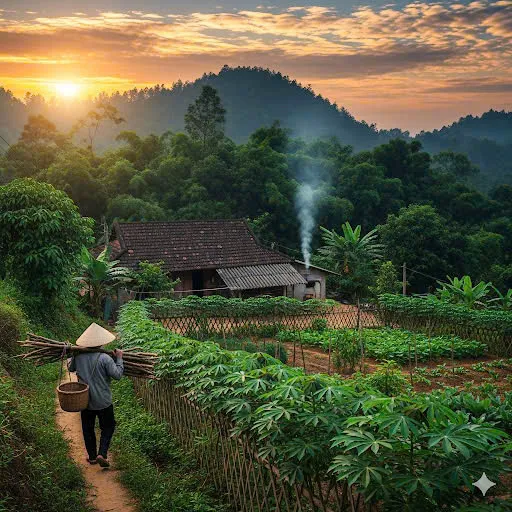
I told my nephew to let her cross the river with me. He pulled the boat out with a clatter. And we went upstream and crossed to the other side while the sun had set but it would still be light for a long time. In the past, his father let me cross the river on a raft, now he lets his siblings cross the river on a motorboat. I don’t see my childhood in my children and perhaps it would be difficult for them to find themselves here, in the present but steeped in their mother’s childhood memories. But somehow we still touch each other, the children of the present and the children of forty years ago.
We were silent, partly because the sound of the boat's engine was too loud compared to the quiet of the river lying submerged under high cliffs, and partly because we didn't want to say a word.
I used to believe that the river had feelings, sometimes angry, sometimes gentle. I even believed that it had a heart - a warm, wet heart that would one day fit in the palm of my hand, wriggling like a small fish and splashing water. Of course, then I left. I left the river knowing that it would always be noisy in the summer, quiet when the cold winter days swept the dry rocks. But what I imagined most was a child standing on the dry river holding some cassava roots, looking downstream.
The Man girls had not returned yet, the fires were still red, the fragrant smell of smoke wafted from the burning bean stalks.
Source: https://www.sggp.org.vn/duoi-nhung-ngon-nui-post811928.html



![[Photo] General Secretary To Lam attends the 8th Congress of the Central Public Security Party Committee](https://vphoto.vietnam.vn/thumb/1200x675/vietnam/resource/IMAGE/2025/10/4/79fadf490f674dc483794f2d955f6045)

![[Photo] Bustling Mid-Autumn Festival at the Museum of Ethnology](https://vphoto.vietnam.vn/thumb/1200x675/vietnam/resource/IMAGE/2025/10/4/da8d5927734d4ca58e3eced14bc435a3)
![[Photo] Solemn opening of the 8th Congress of the Central Public Security Party Committee, term 2025-2030](https://vphoto.vietnam.vn/thumb/1200x675/vietnam/resource/IMAGE/2025/10/4/f3b00fb779f44979809441a4dac5c7df)



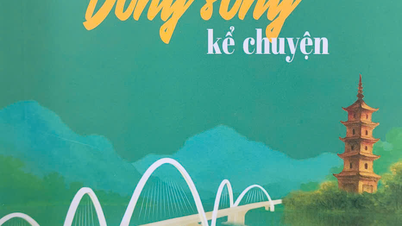









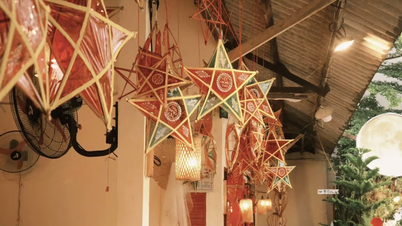
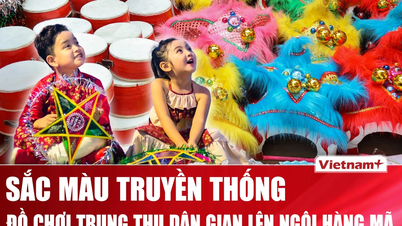



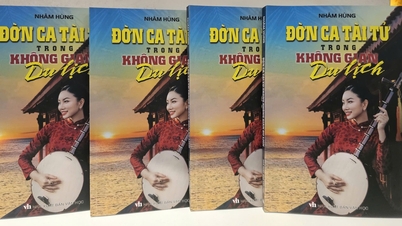

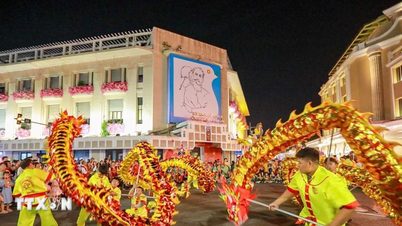






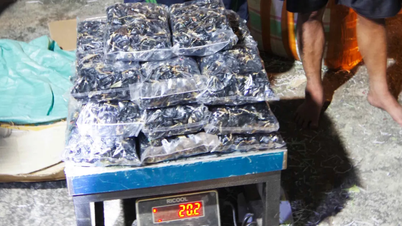
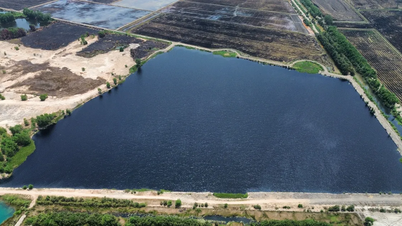

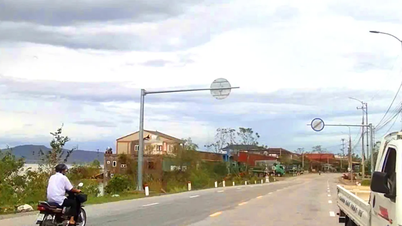
![Bringing G-DRAGON 2025 WORLD TOUR [Übermensch] to Vietnam, 8Wonder turns the impossible into possible](https://vphoto.vietnam.vn/thumb/402x226/vietnam/resource/IMAGE/2025/10/4/f2e1e99f90a54c788bb3acaba910ba8b)
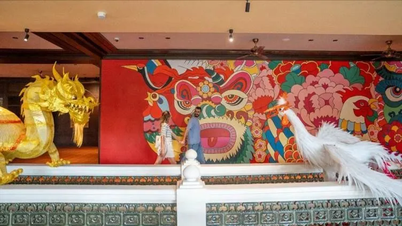


























![[VIDEO] Summary of Petrovietnam's 50th Anniversary Ceremony](https://vphoto.vietnam.vn/thumb/402x226/vietnam/resource/IMAGE/2025/10/4/abe133bdb8114793a16d4fe3e5bd0f12)
![[VIDEO] GENERAL SECRETARY TO LAM AWARDS PETROVIETNAM 8 GOLDEN WORDS: "PIONEER - EXCELLENT - SUSTAINABLE - GLOBAL"](https://vphoto.vietnam.vn/thumb/402x226/vietnam/resource/IMAGE/2025/7/23/c2fdb48863e846cfa9fb8e6ea9cf44e7)









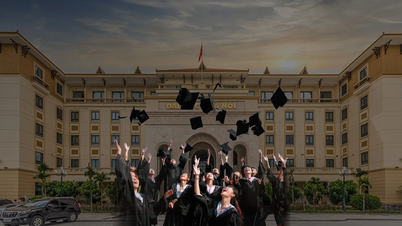







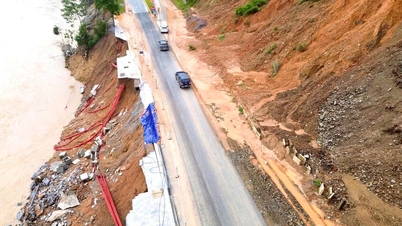



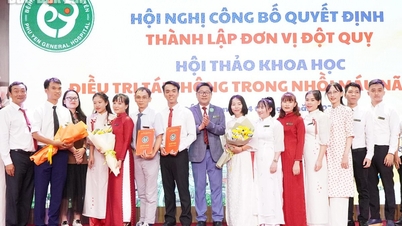
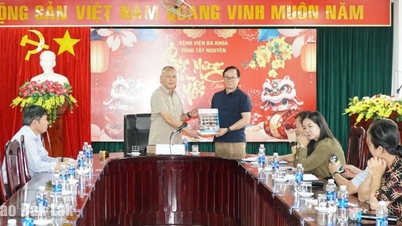
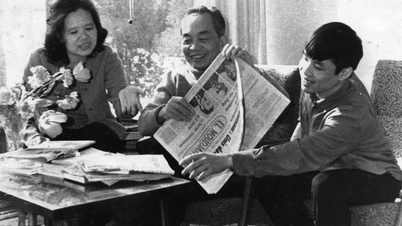

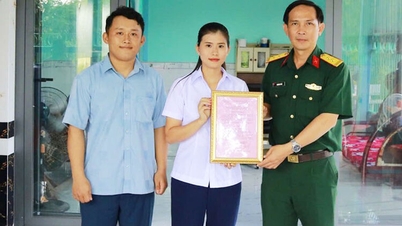






Comment (0)